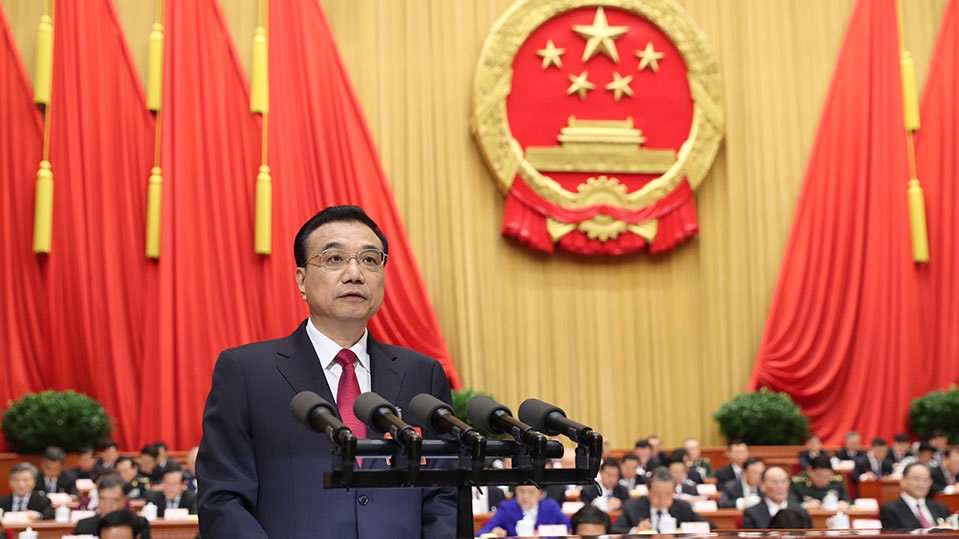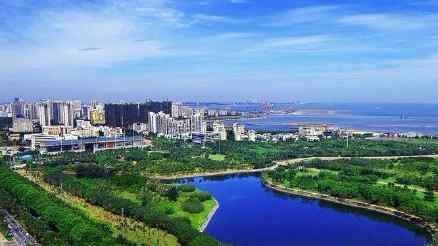
China
16:13, 06-Mar-2017
Opinion: China to make steadfast efforts to win war on pollution
Updated
10:58, 28-Jun-2018

Guest commentary by Wu Changhua
The number of days when China's skies were blue increased in 2016, a progress that can be attributed to the continued commitment and efforts made by national government in recent years. China now has sharper teeth in its environmental pollution prevention and control laws, in particular with legislation to address air pollution. Liability, financial, legal and administrative, is becoming a meaningful deterrence to violators.
Premier Li Keqiang’s annual work report to the National People’s Congress confirms this. 2016 witnessed a decline of SO2 emissions at 5.6 percent lower than the year before and NOx at 4 percent, while the average concentration of PM2.5 in 74 key cities decreased 9.1 percent compared to that in 2015. Energy efficiency of its GDP increased 5 percent. The government is spending nearly 3 percent of its GDP on R&D and solutions to environmental protection.

Chinese Premier Li Keqiang delivers a government work report during the opening meeting of the fifth session of China's 12th National People's Congress (NPC) in Beijing, capital of China, on March 5, 2017. /Xinhua Photo
Chinese Premier Li Keqiang delivers a government work report during the opening meeting of the fifth session of China's 12th National People's Congress (NPC) in Beijing, capital of China, on March 5, 2017. /Xinhua Photo
The achievements have to be attributed to a much more integrated strategy at national, regional and sectoral levels. The country phased out more than 65 million tons of iron and steel production capacity and more than 290 million tons of coal production in 2016. Policy incentives continue to release innovation potential when technology innovation and clean-tech deployment become the norm of the day. Laws, regulations and policies around energy efficiency, clean and renewable energy, environmental pollution control and ecological remediation, clean energy transportation, circular economy, material sciences and advanced production, smart solutions or Internet+, together have created the world’s largest clean-tech market.
China continues to have a long-march journey to win the declared war on pollution. Looking to 2017, the government continues its steadfast efforts on improving air quality in cities and regions. With laws and regulations on paper, the country needs to continue to enhance enforcement to scare away any attempt to pollute the environment. As Premier Li Keqiang laid out in his report, a continued decrease of major pollutants will be targeted in 2017, with a 3.4 percent decline in energy consumption per unit of GDP, against the backdrop of a 6.5 percent increase of its economy.
The continued push is expected to phase out some overcapacity in such sectors as iron and steel, as well as coal, as set by the 13th Five-Year Plan. It says that another 50 million tons of iron and steel overcapacity are expected to be phased out, so does another 150 million tons of coal, while more than 50 million KW coal-fired power generation will be phased out, stopped or delayed in their construction. Investment in transportation, in particular public transportation in cities and among cities and regions is expected to contribute hugely to improving people's living quality and reducing vehicular emissions.

CFP Photo
CFP Photo
To win the war on pollution remains a top priority task for the current government. Besides setting ambitious goals and targets, more efforts shall be made on how to implement and enforce them. In the meantime, how to capture the nexus, synergy, and co-benefits in a system and landscape forged by technological progress and a new round of industrial revolution that is disrupting how we live and how we work has become an ability test to decision-makers and city managers today in China. And the big multiplier would fundamentally transform economy and society back to a balanced and harmonious relationship between men and nature.
China still has a long way to go, and so does the world.
(Wu Changhua is the founder of TECONET, a global clean-tach innovation platform which focuses on technology innovation and design, fosters partnership and sharing, and facilitates precision-target services. She is also China/Asia Region director for the Jeremy Rifkin Office. The article reflects the author's opinion, not necessarily the view of CGTN.)

SITEMAP
Copyright © 2018 CGTN. Beijing ICP prepared NO.16065310-3
Copyright © 2018 CGTN. Beijing ICP prepared NO.16065310-3